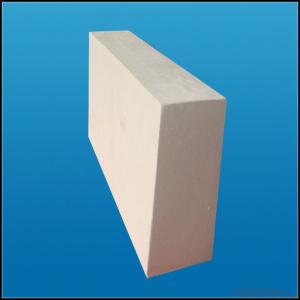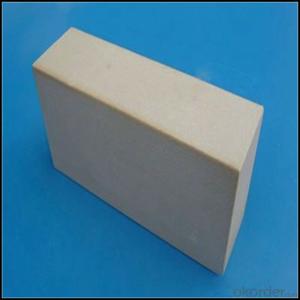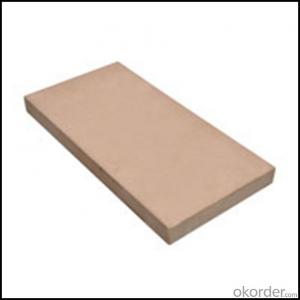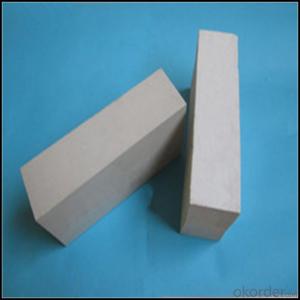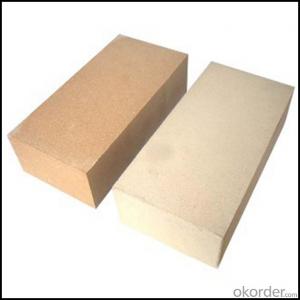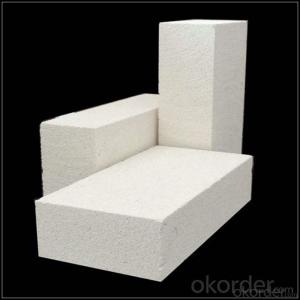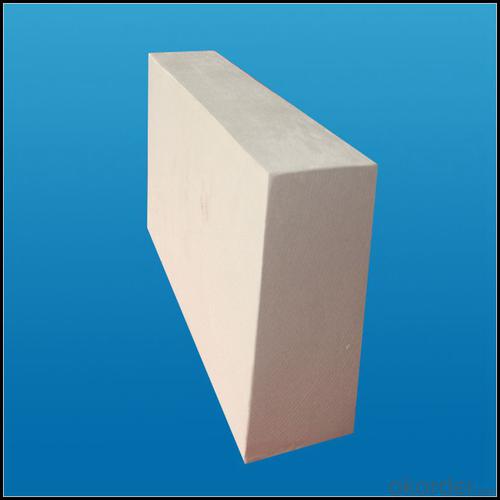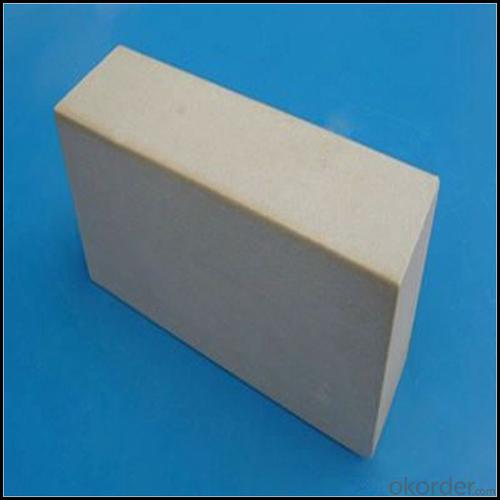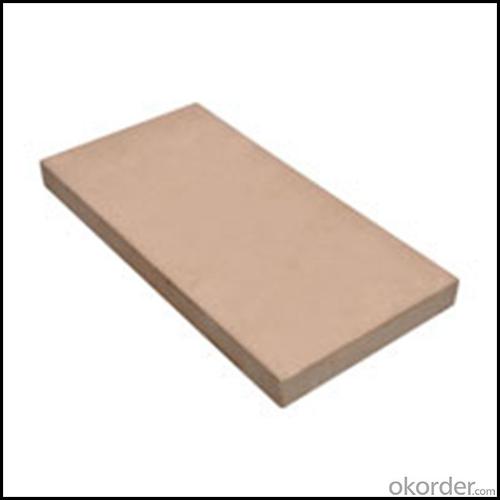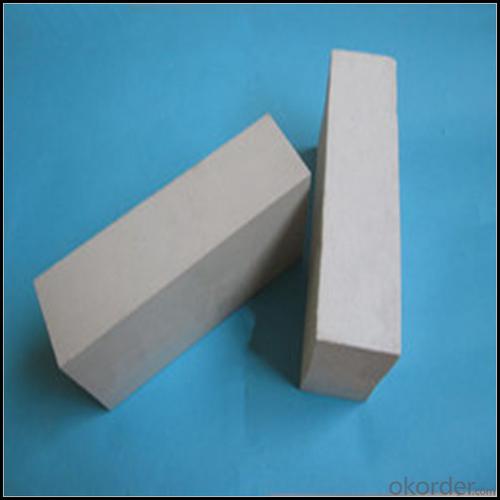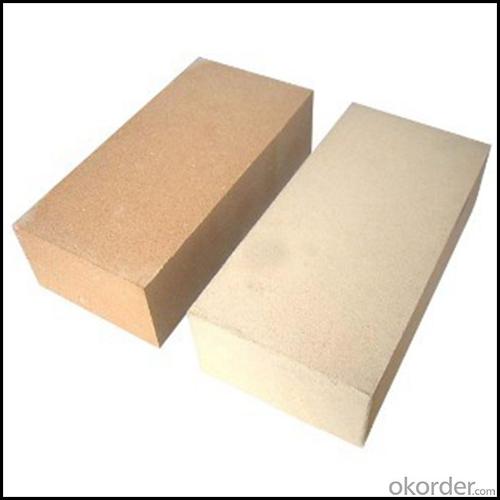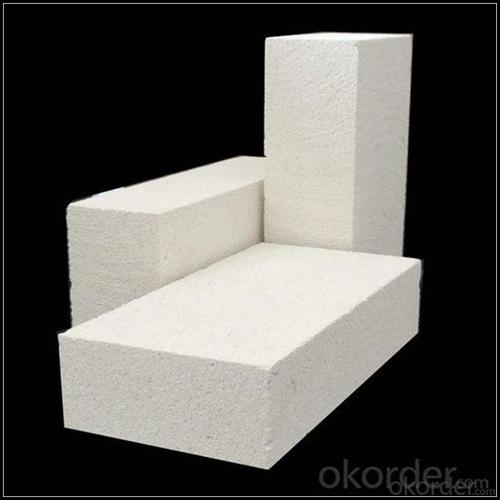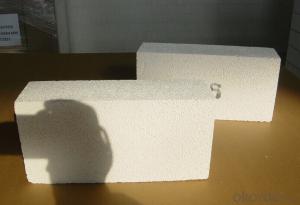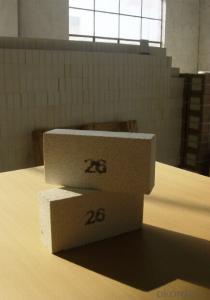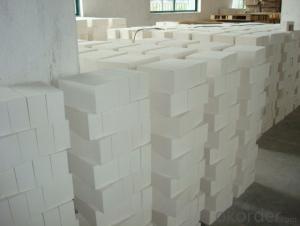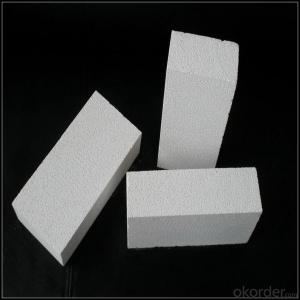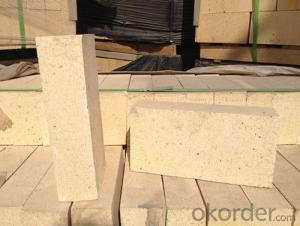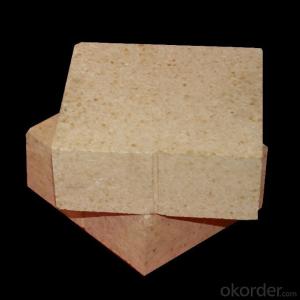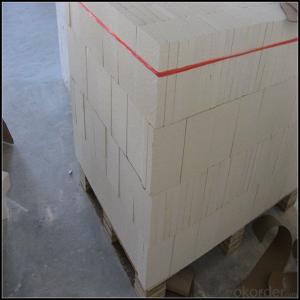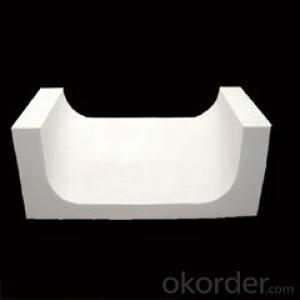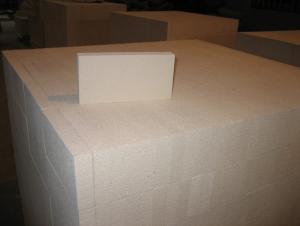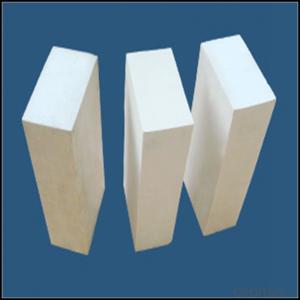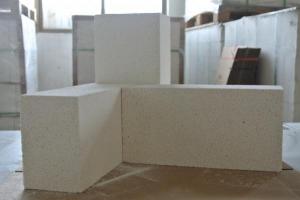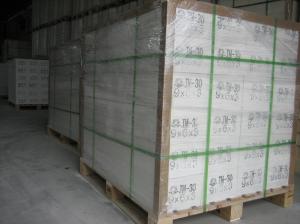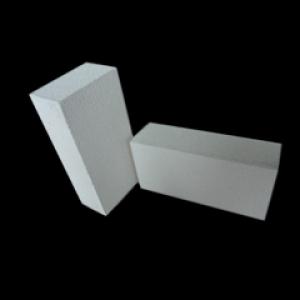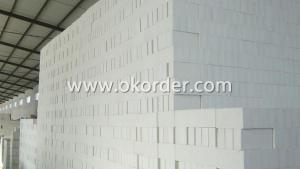Insulating Fire Brick SK32/34/36/38 Refractory Brick
- Loading Port:
- China main port
- Payment Terms:
- TT OR LC
- Min Order Qty:
- 0.01
- Supply Capability:
- 2600 m.t/month
OKorder Service Pledge
OKorder Financial Service
You Might Also Like
Acid Resistant Brick
CMAX firebricks are classified under temperature between 1300℃ to 1700℃, manufactured from high purity alumina clay.
High alumina refractory brick is dense shaped refractory material. With high refractoriness and mechanical behavior under high temperature, refractory brick is the necessary material of high-temperature services, mainly used for industrial furnaces and kilns and thermal equipment.
High alumina refractory brick has wide applications, mainly used in metallurgy, construction(cement and glass), petroleum, chemical industry, electric power and machine building.
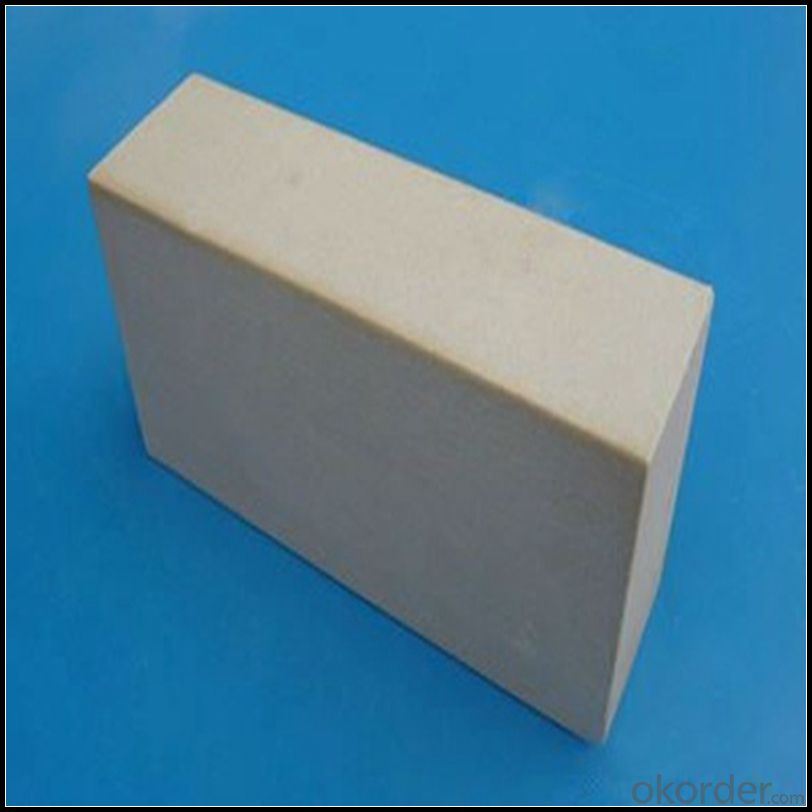
Features
1) Good thermal shock resistance
2) High-temperature endurable
3) Good thermal insulation
4) The using temperature is 1600 c
5) Phosphate high alumina bricks,iso
6) High strength
7) Low thermal conductivity
8) Widely used in cement kiln.
9) Low creeping rate
10) High pressure
11) Excellent thermal shock resistance
12) High quality fireclay clinker
Application
Iron & Steel Making Industry
Blast Furnace,Hot Blast Furnace(stove),Pellet Shaft Furnace,Hot Metal Ladle,Steel
Ladle, Tundish,Heating Furnace,Saking Pit Furnace,Heat Treatment Furnance.Refining Furnance,Reheating Furnance,Metal Mixter Furnance,Annealing Furnace,Cupola Furnace,Electric Arc Furnace,Induction Furnace,AOD Furnace,
cupola furnace,electric arc furnace,induction furnace,AOD furnace,VOD furnace,etc thermal technology equipment .
Non-Ferrous Metal Industry
Smelting furnace,refining furnace,reverberatory furnace,converter furnace
Building Materials Industy
cement kiln,glass kiln,ceramic kiln, lime kilns, kiln car,tunnel kiln
Energy & Incineration
Such as coke oven,general boiler,power generation boiler,circulating fluidized bed boiler,electric furnace,carbon roasting furnace,waste incinerators
Data Sheet
Classification Temperature (℉/℃) | 3000/1650 |
Bulk Density (g/cm3 ) | ≤1.0 |
Thermal Conductivity | |
800℃, W/m.K | ≤0.39 |
1000℃, W/m.K | ≤0.43 |
1200℃, W/m.K | ≤0.48 |
Reheating Linear Change (%) | 1550℃×12h |
≤0.9 | |
Chemical Composition (%) | |
Al2O3 | ≥75 |
Fe2O3 | ≤0.5 |
Packaging & Shipping
Packaging Details:Be packed in fumigated wooden pallets
Delivery Detail: 30 days after order

Our Services
Optimum solution and product supply of refractories for high temperature industries, such as iron steel, non-ferrous, petrochemical and building materials.
Engineering design, contract and consult for refractories, and civil architecture design.
Research, development, manufacture and sale of superhard materials.
R&D, manufacture and sale of special packing materials for export.
Inspection, supervision and arbitration of refractories.
Consultation and services in refractories information.
Training and cultivation of high-level talents in refractories profession
Sales Network

Company Information
CNBM (China National Building Material) Group is the largest comprehensive building materials group in China that in integrate scientific research, manufacturing and logistics into one entity. The largest building materials and equipment specialists in China. Upon State Council approval, today CNBM owned more than 300 subordinate manufacturing factories and servicing companies. There are 6 fully owned public listed companies and 11 partially owned with substantial shares public listed companies. In many of these fields, CNBM is playing the leading role in the building industry in the country.
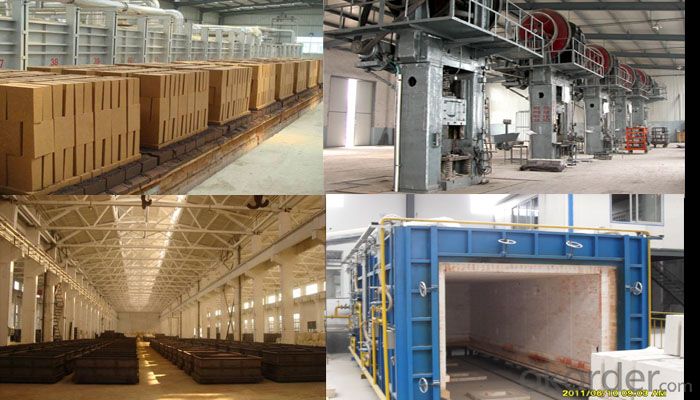
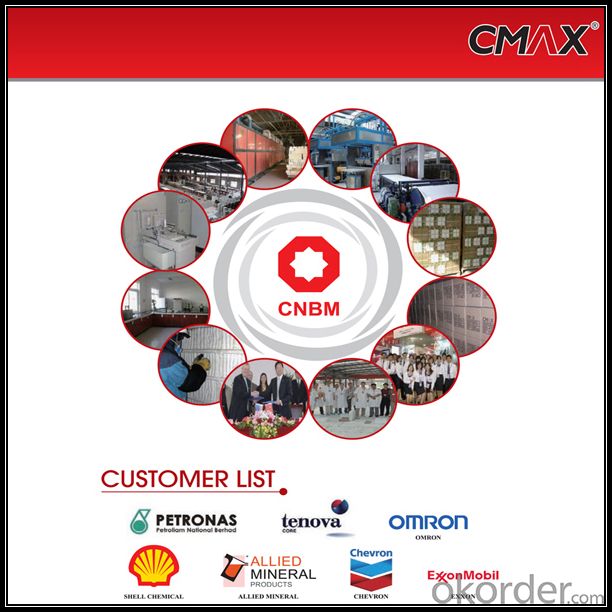
FAQ
1. Which products do you have?
We have all kinds of refractory brick, castable, mortar, cement, ceramic fiber products, etc.
Or you could browse our products to choose what you need.
2. Can you give me a brief introduction of the application of your products?
We are mainly specializing in the refractory materials in iron and steel, cement, glass, ceramics, petrochemical, electric power Industry, etc.
3. If I need your offer, what information do you need?
In order to choose suitable products, it will be appreciated to provide us the information, such us specification, technical data, order quantity, products application etc. If any question, please contact us freely.
- Q: Are insulating fire bricks resistant to sound transmission?
- Insulating fire bricks, also known as refractory bricks, are primarily designed to withstand high temperatures and provide thermal insulation. While they are effective in reducing heat transfer, they are not specifically designed to resist sound transmission. Insulating fire bricks are made from materials such as clay, alumina, and silica, which are chosen for their ability to withstand high temperatures. These materials are dense and have a low porosity, which helps to prevent heat from passing through the bricks. However, sound waves can easily pass through solid materials, including insulating fire bricks, unless additional measures are taken to reduce sound transmission. To effectively reduce sound transmission, other soundproofing methods should be used in conjunction with insulating fire bricks. These can include adding additional layers of acoustic insulation or using sound barriers such as mass-loaded vinyl or acoustic panels. In summary, while insulating fire bricks are excellent for thermal insulation, they are not inherently resistant to sound transmission. Additional soundproofing measures should be taken to effectively reduce noise transmission in a given space.
- Q: How shall the sintered porous self insulation bricks be laid at the bottom of the beam?
- All reserved holes larger than 200 * 200 shall be reserved
- Q: Can insulating fire bricks be used in foundries?
- Yes, insulating fire bricks can be used in foundries. They are commonly used as lining materials for various high-temperature applications, including foundries. Insulating fire bricks provide excellent thermal insulation, reducing heat loss and improving energy efficiency in the foundry process. Additionally, they have good resistance to thermal shock and can withstand the extreme temperatures and harsh conditions often found in foundry environments.
- Q: Do insulating fire bricks expand and contract with temperature changes?
- Yes, insulating fire bricks do expand and contract with temperature changes. Like any material, when exposed to heat, the insulating fire bricks expand, and when cooled, they contract. This expansion and contraction occur due to the thermal expansion coefficient of the material, which determines how much it will expand or contract for a given change in temperature. It is important to consider this property when using insulating fire bricks in applications where temperature fluctuations are expected, as failure to account for the expansion and contraction may lead to structural damage or cracking.
- Q: Do insulating fire bricks require any special storage conditions?
- There are no specific special storage conditions necessary for insulating fire bricks. These bricks can endure high temperatures and are usually composed of materials like clay or silica that are heat-resistant. Nevertheless, it is advisable to store them in a dry and covered location to prevent moisture absorption or harm. Furthermore, it is crucial to handle these bricks cautiously to avoid breakage or cracks that could impact their insulation properties. Ultimately, as long as the bricks are stored in a dry and safeguarded setting, no particular special storage conditions are needed for insulating fire bricks.
- Q: How to do indoor thermal insulation
- Soft packing can also achieve warmth effectTry to change the interior decoration style, whether in visual or make new home warm, in all senses such as the fabric furniture instead of wood or iron rattan furniture, or the use of fabric material packaging wood seat, living room, bedroom stone and tile carpet, lighting equipment can be replaced with warm light lamp. Wall hanging tapestry. When choosing curtain, choose the curtain with thick cloth, thick, insulated and warm effect as much as possible. In addition, the cold tone leather sofa "cotton": a soft warm cotton sofa is the inevitable choice, also can make full use of cotton cushion and pillow.
- Q: Do insulating fire bricks have good mechanical strength?
- Insulating fire bricks generally have moderate mechanical strength compared to regular fire bricks. While their main purpose is to provide excellent thermal insulation, they are still able to withstand some amount of mechanical stress. However, it is important to note that their mechanical strength may not be as high as other types of fire bricks, which are specifically designed to withstand heavier loads and abrasion. Therefore, if the application requires both high insulation and superior mechanical strength, it might be necessary to consider using a combination of insulating fire bricks and regular fire bricks to achieve the desired outcome.
- Q: Can insulating fire bricks be used for insulation in hot water tanks?
- Yes, insulating fire bricks can be used for insulation in hot water tanks. Insulating fire bricks are designed to have excellent thermal insulation properties, making them an ideal choice for insulating hot water tanks. These bricks can effectively prevent heat loss from the hot water tank, helping to maintain the temperature of the water for longer periods of time. Additionally, insulating fire bricks are highly durable and can withstand high temperatures without cracking or breaking, making them a reliable choice for hot water tank insulation.
- Q: Can insulating fire bricks be used for both residential and commercial purposes?
- Yes, insulating fire bricks can be used for both residential and commercial purposes. These bricks are designed to withstand high temperatures and provide excellent insulation, making them suitable for various applications such as lining fireplaces, kilns, furnaces, and industrial ovens in both residential and commercial settings.
- Q: Are insulating fire bricks resistant to vibrations?
- Yes, insulating fire bricks are generally resistant to vibrations. They are designed to withstand high temperatures and physical stress, making them suitable for applications where vibrations may occur, such as in furnaces or kilns. However, the level of vibration resistance may vary depending on the specific composition and quality of the insulating fire bricks.
Send your message to us
Insulating Fire Brick SK32/34/36/38 Refractory Brick
- Loading Port:
- China main port
- Payment Terms:
- TT OR LC
- Min Order Qty:
- 0.01
- Supply Capability:
- 2600 m.t/month
OKorder Service Pledge
OKorder Financial Service
Similar products
Hot products
Hot Searches
Related keywords
